Introduction
We’ve all been there - the endless cycle of stress with no end in sight.
And when we’re in this prolonged state of stress, we open our bodies to chronic inflammation and oxidative damage.
We can’t really avoid stress, but there IS something we can do when it happens!
Did you know that plants in your diet can help fight off the cellular damage that chronic stress causes in your body?
This week on The Goodness Lover Podcast, we spoke with Dr. Gemma Newman — Board Certified Family Medicine Doctor who specialises in holistic health and plant-based nutrition. She is also the bestselling author of "The Plant Power Doctor."
Watch the Interview:
Dr. Newman explained:
🍽 How food is capable of reducing inflammation in the body
😯 Why stress can be immunosuppressive and damage cells
🥬 The powerful effect of antioxidants in plant foods
🍠 Why you should be eating foods high in tryptophan and fiber
And SO much more!
Additional Resources
To connect with Dr. Newman and discover more of her work, you can find her on Instagram and Facebook. You can also visit her website here.Transcript
Sarah: Hello. And welcome back to the Goodness Lover Show. Today, we're joined by a medical doctor and best-selling author Gemma Newman. Who's here to talk to us all about stress, not what it just does to us mentally, but physiologically and how you can combat stress by choosing what's on your plate. Let's get into it.
Matt: Dr. Gemma Newman, it is awesome to have you on the show with us today. How are you doing today? You're tuning in from UK at the moment?
Dr. Gemma Newman: I am. I am a long way away, but obviously, it's nice to see you so personally face-to-face. And it's been a real pleasure to be invited. So thank you for having me.
Matt: Awesome. So I think you're our first UK guest, which is great as an Australian to go back to the motherland as to where this all came from. So thank you so much as our first UK guest on this podcast. But today we're talking about stress, plants and food, but I'd be really curious to start, you're a medical doctor and would love to hear more about your qualifications and how you got into this. But what was your story? Why did you decide to go down a more holistic path as in your medical practice?
Dr. Gemma Newman: Oh, well, thanks for asking, and it has been a journey. But I have to say, I did always want to be a doctor, it was something that was really important to me from quite a young age. I loved the idea of helping people. I know it sounds corny, but it's true. And when I got into medical school, I was very young and I was very excited about the prospect of saving lives. Leaving medical school, and actually going out into the real world was quite different. There were times at which we were doing an incredible job and people were coming in extreme circumstances, we were helping them. But other times I realized that a lot of the things that people were suffering from those chronic diseases that led to them being in the hospital, it was really very hard to address those things.
So I decided to go into general practice because family medicine meant that I could essentially attempt to save lives in slow motion. You can get to know your patients, you can get to know their families, their circumstances, where they came from? Why they do the things they do? And hopefully plant those seeds of change. But again, I felt like when I went into general practice it was really hard to help people to change their lives, and it was really hard to help people to feel better. I was doing a lot of chronic disease management as I still do prescribing medications, tinkering with those medications or trying to get their blood pressure down, trying to get their diabetes control a little bit tighter. But watching that gradual decline still and feeling as though they weren't necessarily getting better.
So I did what I do and I thought, well, what else can I do to try and help these patients of mine to feel better? I researched psychology, a solution-focused brief therapeutic approaches, CBT. I had a vague idea that nutrition would be helpful because I realized that obviously the food that we eat is the building blocks for what we create in our bodies. But I didn't really know exactly how, I just thought, well, the usual sort of background hum of making sure that you move more, eat less if you wanted to lose weight and maybe cut the carbs and have more sort of skinless chicken and fish and salad and that kind of thing.
And it was interesting because I in parallel also have my own health journey because I wasn't looking after myself during my training, we had long hours, we had night shifts, I was exhausted, I would just grab what I could on the wards. And I felt really sluggish, I felt tired. I'd get home from a long shift, I'd barely be able to eat my dinner with before falling asleep. And so it was at that point, I thought I'm in my 20s, I need to be full of energy, I need to be able to work, to help my patients. And so that's when I also started to think, "Okay, well what can I do for myself?"
And interestingly at that time, I hadn't researched nutrition specifically only in the sense that I knew at medical school, that there were certainly nutritional deficiencies that we had to be aware of, but I decided to just kind of the cut the carbs, move more, eat less, and it worked. I was able to have a little more energy. As a side effect of that, I also lost some weight and I felt much more able to do my job. But the big shocker was when I checked my blood profile and I realized that I had a raised cholesterol and lipid profile even in my physical prime working really hard to make sure that I was in a healthy place. And that really shocked me.
And I thought, well, that's just my genetic destiny, I just oing to have to live with the fact that's my body, and I can't do anything about it. And sometimes that's true. But I also later on discovered that there are plenty of ways in which I could help bring my cholesterol down through the food that I was eating. And that journey happened through my husband who's not medical. So he was running in the London Marathon. He was trying to improve his performance. He was trying to do to figure out, well, how can I run like these ultra runners that run two, three marathons in one go? And he was struggling with injury.
So he started to look up the work of Rich Roll, the event Finding Ultra, he read Brendan Brazier's book Thrive, he read Scott Jurek's Born to Run, arguably one of the most well-known ultra marathon runners of all time. And he started to sort of implement that in his life. And I was hugely skeptical because I thought, well, this is odd, you're cutting out huge food groups, it can't be healthy. You'll get protein deficiency, all the things that you sort of might wonder as a person that hadn't really looked into plant-based nutrition.
But I was really surprised because he was able to improve his marathon running time incredibly. He went from running the marathon before he made the changes to after, and he improved his running time by an hour and 10 minutes, which was absolutely phenomenal. And it got my attention, so I began to do some of my own research and I began to understand the power of plant-based nutrition. And for me, it wasn't about athletics, it wasn't about sporting prowess, I just wanted to help my patients. And so I began to research, well, what could it do for someone who has heart disease? And what could it do for someone who wants to prevent cancer? And what could it do for someone who's having hormonal issues? And what could it do for somebody with diabetes?
And time and again, I began to see actually from the data that there are tremendous benefits. And so I decided to check it out, do it for myself. And I did it secretly to start with because I didn't want to lose face with my husband, I didn't want to fall flatten fail. I thought, well, I'll just start cooking plant-based meals. And I won't make a big announcement. And then lol and behold about a month after I'd made the changes, I decided to get a blood test and I realized that for the first time in my adult life, I've been able to bring my lipid profiles into the normal range. And another benefit, which I hadn't really factored in was that when I was running, I no longer had knee pains, which I've been suffering from throughout my 20s. And I began to realize that this could really work. And then of course the magic happened when I had the confidence, both from personal experience and from research to start recommending it to my patients.
Matt: Wow, that's awesome. So I guess that brings into plant perspective. So you are now the Plant Power Doctor, so I'm guessing this is taken quite the hold on your entire practice?
Dr. Gemma Newman: Well, yes, I think it's really funny, isn't it? Because there are so many aspects to my practice and how I communicate with my patients and psychology and behavior change has been a really important part of that. But absolutely when I discovered the tremendous benefits of plant-based nutrition that's why I decided to go on to social media because I realized at that time that they weren't really, in my experience, any doctors particularly talking about it. And I really wanted to get people to understand far and wide what they could hopefully achieve. And so that's where my Plant Power Dr. Monica came from. And then, of course, it turned into the best-selling book, which is lovely.
And yes, it does inform my practice, it's something that I aim to include in one way or another, if it's something that my patients are receptive to just planting that seed sometimes. Sometimes patients want to make tremendous changes straight away if they are particularly motivated or if they're in a difficult place, but everybody is different. And that's the magic of being human, I think is that we're all on different journeys at different times. But I do aim to talk about the power and benefits of healthy plant-based nutrition as much as I can.
Matt: Well, if you allow me to be a skeptical patient that's walking into your practice and I look up and I'm like, well, Dr. Gemma, I've looked at this food pyramid in my entire life, and I'm supposed to have a balanced thing of dairy and meat is supposed to be in there. And that's how I generally feel if I'm going to live a healthy life, that's what I'm supposed to do. How are plants supposed to fill up that pyramid that we've maybe been led to believe is the optimal way to eat healthily and balanced?
Dr. Gemma Newman: Well, that's a very good question, I'm so glad you asked. I think what I tend to do in my practice is ask them questions first, because if I state, well, you should eat more plants, they immediately would come back with a question like that. And I think for me, what's important is actually finding out what's important to them first, and it varies from person to person. So if there's a man who's had a cardiac event and he wants to improve his angina so he can walk his daughter down the aisle, then that's what I'll focus on. And if there is a woman whose mother has recently had breast cancer and she's wanting to reduce her risk, that's the kind of thing that I would focus on. So it's about finding what's important to them and focusing on that and the data that would support that.
And I think generally people understand that dietary guidelines tend to come from looking at broad swathes of data and broad populations. And when you want to use what your nutrition for specific intervention then it's quite a different prospect than just generally sort of balanced advice. And sometimes I might talk a little bit about how industry can inform the popular zeitgeist, which I think is something that some patients want to talk more about. But ultimately I focus on them and what they need from the consultation and what they would like from their life moving forward. And if I can share bits of information that they're receptive to when it comes to their condition or the thing that they're interested in, then that's when they're far more motivated to make a change.
Matt: Interesting. Cool. Well, we know a lot of people, if we were to collectively say in our community, that stress has been a massive problem, obviously facing us all through this pandemic. So what role does food have in reducing stress? And what are some other interventions that we can use to reduce our stress? And what impact does that have on big, bad word that everyone talks about called inflammation?
Dr. Gemma Newman: I mean, food can be tremendously powerful. And it's interesting because I talked to my patients a lot about the stress that we've had during the pandemic. And I think it's quite hard because I see patients who are really struggling, they've got different financial circumstances, huge stresses, anxiety, and it's hard for them to make changes sometimes. But when I talk about how food can be beneficial then it's something that they can actually take control of in a relatively short space of time. So it can be really helpful for them. So I would say that food has a really important role to play for people, it's something that people can do, which is quite practical to help them to feel better.
But I also want to point out that it's not as simple for many people is just eating more broccoli or having more vegetables. I don't want to minimize a lot of the mental health challenges that people have been facing, especially during the pandemic, but in life generally, a lot of things can happen that can really feel very difficult. And there are certain mental health conditions that will require things like therapy and other approaches to really help people. But that's not to say that food can't play a really important role. And there is some research behind that as well.
It's interesting I read some research from Taiwan to say that that people who are eating more folate-rich foods subjective is that they felt a lot happier. There's research from Felisa Jacks to show that actually having a more Mediterranean-style diet as an intervention, as a randomized control trial is a really interesting way of improving overall mood scores. And in fact was more effective than things like social support in that particular trial. There's studies from the U.S. to show that people that were working for an insurance company when they were part of this controlled trial to eat more fruits, vegetables, legumes, and grains, that they were able not only to improve workplace productivity, but also overall mood scores as well.
So we can see on a practical level that it can definitely help, and it kind of makes sense because these are the foods that nourish us from the inside out. There are certain components of these foods that can be really helpful for helping us to create neurotransmitters that help us to feel good. I don't know if you've talked about this with your audience before, but tryptophan the amino acid is one of the precursors for serotonin, which is one of our feel good hormones. And we know that actually having fiber-rich foods that are also rich in tryptophan is a lovely way of potentially improving our mood because those amino acids can go directly through the blood-brain barrier.
There's a lot of talk about gut health and how it connects with mental health, and that's true. But the serotonin that's made in the gut doesn't actually cross the blood brain barrier, whereas the tryptophan which is the precursor for it can. So there was one study which showed that if you have foods that are high in tryptophan that it can be beneficial for mental health. But interestingly that there may also be some competition between amino acids as to which one gets in to pass the blood-brain barrier. So having fiber-rich sources of tryptophan may potentially be having an additional benefit as well.
Sarah: Great. Thank you. So I would love to learn a little bit more about stress itself. We all have been primed to know I guess that stress is bad for us. You hear it stress is bad, stress is bad, don't be stressed, stress is bad, but why is it so bad for us? What is that actually doing physiologically? And I guess I would love to learn about the impact of stress on the immune system as well?
Dr. Gemma Newman: Sure. It's interesting that you say about that, that stress is bad, stress is bad because stress is not necessarily inherently a bad thing. It's important for us to have a fully functioning fight or flight response for times of need. But what can make it really troublesome for us in our lives is if we find ourselves in a more constant feedback loop of stress, because that is potentially quite damaging for us physiologically. If we have high levels of cortisol and adrenaline over long periods of time, it can actually dampen our immune response. Our immune system is tremendously complex and in times gone by, we would have had times at which it would have been vital to run from a predator or from danger, but then the rest of the time we could maintain a generally more peaceful physiology. We could be living in our parasympathetic nervous system, our [inaudible] nervous system, which is where our immune system tends to thrive. We're able to make our immune cells more efficiently when we're in that parasympathetic place.
And in modern society in modern life, perhaps with social media, increasing anxiety, we find ourselves more in that fight or flight response, which means that it does dampen our immune response as well. Those cortisol and adrenaline hormones essentially mean that we're producing less of those helpful immune cells at that time. So it is important to address chronic stress. And chronic stress can also lead to levels of chronic inflammation inside the body oxidative stress, which again is something that we have to have a certain amount of it. In fact, oxidative stress happens in our bodies all the time as part of being alive. We have to use oxygen for a lot of our body processes, but again, it's where that can go too far that we then sort of start to run into problems and we become depleted.
Sarah: Thank you.
Matt: Awesome. So you've written in your book that stress is actually immunosuppressive, so could you just break down what that statement means and what can we do about it?
Dr. Gemma Newman: Well, this book doesn't go into mental health and stress, but I do talk a little bit about oxidative stress and how it can affect us. And as I said, we have free radicals produced in our body through a number of physiological mechanisms and they are active oxygen molecules. And I like to think of it as a bit like pens and a pinball machine, they're bouncing around inside ourselves and they're fast moving and they can cause damage as they go. And there are certain things that we can do to reduce that oxidative damage. And those things are mediated generally through the donation of electrons. They can sort of soothe those free radicals, those oxygen species into sort of calming down and bouncing around much less if you like the analogy.
So fruits and vegetables are amazing because they are essentially electron donators, which is why you might have heard of things like blueberries being called antioxidants, they actually donate electrons to these oxidative species. And that's an important process to allow to reduce inflammation generally. Interestingly, the same thing can actually apply, I guess, when you're just walking around barefoot on the grass, because again, it's about the electrons in the ground and the earth and how they can actually be used to reduce oxidative stress in our bodies. There's less data around that. There's only a very small handful of studies on the potential benefits of grounding. But we know a lot more of course, about the roles of fruits and vegetables and those kinds of foods to allow to reduce oxidative stress. So that's sort of a basic mechanism by which it might happen.
Sarah: Great explanation. I did like the pinball analogy, my brain was there
Matt: And combined with the British accent.
Sarah: I know.
Matt: I was like, I'm watching Discovery Channel.
Sarah: So is it just plant foods that are antioxidant have that mechanism of electron donating?
Dr. Gemma Newman: I mean, basically. So when you're eating animal products, there are certain nutrients that you're getting, there are certain vitamins and minerals, but generally speaking, you may have other issues as well that come alongside that. So we have other potential carcinogens for example in certain meat products. Heme iron very oxidizing. So iron is a crucial element that we need for our bodies, but when we have it in the form of heme iron, it can be oxidizing. Whereas non-heme iron is less. So having said that we may not necessarily absorb so much of the non-heme iron. So it'd be important to make sure that depending on your own personal circumstances if you're known to have low iron stores, then a great way of boosting the amount of non-heme iron, you get from fruits, vegetables, legumes, and whole grains is by having a source of vitamin C with your iron rich foods. So maybe squeezing some lemon over your curry, for example, something like that.
And also avoiding tannins from things like tea. So having those at different times of day from when you're eating is another way of increasing the amount of iron that you're getting from your feed. But generally speaking, the anti inflammatory antioxidant component of the diet tends to be much more fruits, vegetables, whole grains, and legumes.
Matt: So where are some really rich, antioxidant foods?
Dr. Gemma Newman: Well, obviously fruits, vegetables, whole grains and legumes are generally fantastic for antioxidants. But if you wanted a particularly concentrated source, berries are brilliant, things like blueberries and raspberries or whatever berries you have where you live. And things like green tea can be great. Matcha is a particularly great source as well. And I think as long as you're prioritizing fruits and vegetables, nuts seeds, whole grains and legumes, you're going to be having a lovely broad range of antioxidant rich foods.
Matt: Awesome. So I've heard that, and we've spoken to about, about this particular issue with a few other guests, that the fact that plants actually go through stress and never adapted to this stress by producing these polyphenols and things, which are hugely, as you were saying, antioxidants. So it's basically what you're saying is we can really, I guess, benefit or absorb what the plant has adapted to it's through colds and fighting viruses and all the things that the plant has to do to survive, we actually get those benefits as well?
Dr. Gemma Newman: Yeah, that's exactly what I'm saying. It this way I suppose we've evolved side by side with nature and it's good to be able to take advantage of those mechanisms that the plants have used to protect themselves. Yeah, that's what I'm saying, it's really healthy for us.
Matt: Awesome. Do you suggest your patients eat organic if possible for those sorts of foods higher in these antioxidant properties?
Dr. Gemma Newman: I haven't read any data to suggest that organic foods are higher in antioxidants, if you know of any, let me know, and I'll have a look at it. I think when it comes to the benefits of fruits and vegetables, I tend to suggest having more fruits and veggies generally is great. A lot of the population-based data that we have on the benefits and power of plant-based nutrition comes from eating conventionally grown foods. There are a few studies, the most notable of which I believe happened in France to show that there could be a potential increased risk of a certain kind of cancer, B-cell lymphoma when populations are having conventionally grown foods as opposed to organic. But there are also long-term large population data studies to show that fruits and vegetables are healthy no matter where they came from. So I think it's really about finding what is practical for the person in front of me.
I've got a lot of patients who can't afford to spend money on organic produce and eating a lot of ultra processed foods, convenience foods, maybe haven't learned or not been had access to the ability to learn how to cook. And so I guess it depends really where you're coming from as to where you're aiming to get to and what comes sort of feel practical and available in your life. I personally do buy organic products, mostly not everything. And I think there are certain products that are probably easier to get hold of that are organic versus non-organic. Sometimes it's helpful to know about certain things like the skins, bananas and avocados, it may not necessarily be as important to have those things organic.
So I think it can be a contentious issue for people, especially if they don't have the budget for it. And I'd love to chat for a long time about the constraints in society and where we are right now and where I'd like to see things go and how I'd like to see regenerative or conservation agricultural techniques prioritized in the future so that we can minimize excess use of pesticides just as we minimize excess use of antibiotics in my practice. I mean, there's, there's loads of things I could talk about with that, but I think probably the take home message is to just eat more vegetables wherever they come from. And then if you're interested to learn more about how to support local farmers with conservation agriculture techniques because they're not always organic certified, but they can be tremendously helpful for the soil. So again, it can be a little bit of a nuanced issue, but it depends where you're starting from as to where you go.
Matt: We often talk to our community about going to the farmer's market. And you can just have the conversation with the farmer if you have that opportunity obviously to and say, "Hey, this may not be officially organic." But if you have the conversation with them, they're-
Sarah: How do you grow it?
Matt: And it can still be just as affordable as getting from the supermarket.
Dr. Gemma Newman: Yeah, exactly. And that's a lovely thing. That's a great thing to recommend because you're getting to know the person that grew your food and that food is hard to grow. I don't know if anybody's trying to have like a vegetable garden, but it's a real struggle and I think it's great to have that respect for how the food is grown and how difficult it can be, what a skill it can be. And I think our farmers are our agricultural superheroes and if we can support them in going back to healthy in a conservational agricultural techniques then all the better.
Matt: Awesome. We spoke about tryptophan before, and I thought that was really curious what you were saying and just the important role that amino acids can play and can cross the blood-brain barrier. I didn't know if we covered some specific your go-to foods that are plants that are high in tryptophan?
Dr. Gemma Newman: So things like pumpkin seeds and butternut squash are particularly high in tryptophan and also fiber. I think that sunflower seeds as well, a great high tryptophan food source. So think about your kind of orange vegetables, root vegetables, and seeds would be a great source of tryptophan as well.
Sarah: Great.
Matt: Awesome. I heard you mentioned fiber there, so I'm guessing as well that those foods would be great for our gut bugs?
Dr. Gemma Newman: Oh, yes. And we all love nurturing our gut bugs and hopefully most of your audience are now really excited by the idea of how fiber can help them to do that. Fiber is so important for feeding those beneficial gut bacteria. And they can help produce short chain fatty acids, which actually have a role to play in regulating some of our stress hormones too, which is another mechanism by which our food can help our mood because they can regulate some of those things like dopamine, for example, in our intestine. So fiber is really, really important for maintaining good mental health as well as everything else, immune health, it's great for modulating both.
Sarah: Wonderful. So I'm hoping we could dive a little bit more into oxidative stress. What would be some ways that we are maybe unwittingly raising our levels or leading to, I don't know how to word this unsustainable levels of oxidative stress and what is the end result of that?
Dr. Gemma Newman: Well, I mean, there's lots of different ways I think in modern society that we could. And again, I think a lot of the things in our body are very much connected. So if we sort of circle back towards the microbiome and you were talking about the role of fiber and how important that is for microbial health and for our mood. But also just generally supporting those microbial populations is important for reducing oxidative stress. And there are lots of ways in which our gut microbiome can be impacted by the modern world, not just the food that we eat, they have their own circadian rhythm. So late nights can actually have an impact on our immune health, on gut health for that reason. People who live in urban environments potentially have a slightly depleted gut microbiome compared to those who live in less urban environments.
There are certain pesticide exposures that could reduce the health of our gut microbiome, which makes total sense because pesticides are obviously designed to be anti-microbial. And, of course, if you're eating those foods, then they may well have a strong effect on our microbes. So what else? I mean, there are so many thinking about the pollution in the ocean. You've got PCBs and microplastics that can disrupt our hormones and potentially also disrupt our gut microbiome and cause oxidative stress. I think I don't want it to feel too overwhelming though, I think sometimes you might listen to something like this and think, well, what can I do? Everything is toxic. I don't want people to feel that way, I want people to feel empowered and hopeful and excited. And I think knowing about some of the things that you can do in and around your home and on your plates to help you feel better is I'm hoping a really empowering thing to do.
So prioritizing fruits and vegetables and whole grains and legumes, thinking about your water and air quality, if that's something that is on your radar, if that's something that you've got the mental bandwidth to do, looking perhaps into like water filter, for example, might be good depending on where you live. If you're in a very urban environment with lots of air pollution, thinking about making your home a place where you've perhaps got an air filter, for example, so that at least when you're asleep and when you're in your home, you have a place where you've got less air pollution exposure. So those kinds of things that I think might make a really important impact.
Using green spaces, hopefully wherever you're living, you may have access to a local park, which is a lovely way of calming the nervous system, thereby also soothing your immune system, taking in those fight insides from plant compounds, the varied microbiome that you can breathe in through being in those green spaces, looking at the fractals and those recurring patterns in nature as you look up into the trees. These are all things that are free and freely available, hopefully for most people. And it's things like that that I think can have a really tremendous impact without people even realizing it.
Sarah: Beautiful.
Matt: Interesting, yeah. I love that. Particularly as you'll be thinking during a pandemic, these things are free available to everyone. And obviously the curious thing is that the people that we know that are suffering from more severe COVID related symptoms are typically those that are metabolically compromised. So our immune system starting with our gut ends, eating the right foods is a huge step forward into protecting us from obviously not just COVID, but from everything else that is trying to assault us in this toxic world?
Dr. Gemma Newman: And there was an interesting study that came out recently on a medical professionals in the UK. They did dietary questionnaires and they found in the medical professionals who had been exposed to COVID, those who had had a more plant-based diet tended to have less severe disease, which I thought was a really interesting emerging study. I found that study really interesting, and obviously we can't extrapolate that onto a large population of people, we can't prematurely come to any conclusions, but it was so encouraging to see that data. And it does fit with what we already know about the benefits for our overall wellbeing and health to having a plant predominant diet
Sarah: Well said. Well, thank you so much, Dr. Gemma for joining us today. We've loved learning more about you and about plants and getting us more excited about seeing all that and rainbow on our plates. So thank you so much. You have a book, the Plant Powered Doctor that came out in January and it's become a bestseller, which is really exciting. So if anyone listening wants to learn more about you and get their hands on that book where would they find it?
Dr. Gemma Newman: Well, they would find it at gemmanewman.com or at any good bookstore. My website actually has a lose of free resources and links and articles and things that might be of interest to your audience. So if they want to just have a long to gemmanewman.com or plantpowerdoctor.com, it takes you to the same place. You should be able to find links to my book and loads of resources there, and of course, on Instagram.
Sarah: Excellent. Which is the Plant Power Doctor?
Dr. Gemma Newman: Yes. That's right. Well done, Sarah.
Sarah: Wonderful. Well, thank you again. It's been a pleasure having you. We'll have to get you back again soon to talk about even more things. It was actually tricky to figure out what to talk about with you today just because I actually had my team coming up with ideas about what we could interview and it was like, oh, we could ask her this or this or this, I think she'd be good on this, on this, on this as well. So we'll have to get one of those other topics because it's been such a lovely chat. So thank you.
Dr. Gemma Newman: Thank you. I've really enjoyed it. Thank you for having me.
Matt: Well, that was awesome, I really enjoyed that. So let us know in the comments what you thought of the interview below. I thought it was some really great snippets there on antioxidants and what they do, and as well on amino acids and tryptophan. And maybe you've heard about this thing about serotonin being made in your gut and thinking that that serotonin is what gets up in your brain, which is a little bit more nuanced than that. So I'd love to actually clarified that as well, which has been awesome. So let's on the comments, what you thought. And if you really like us, give us a like and subscribe, that would really make our day. So hit those buttons, and we will see you guys next week.
Sarah: See you then.






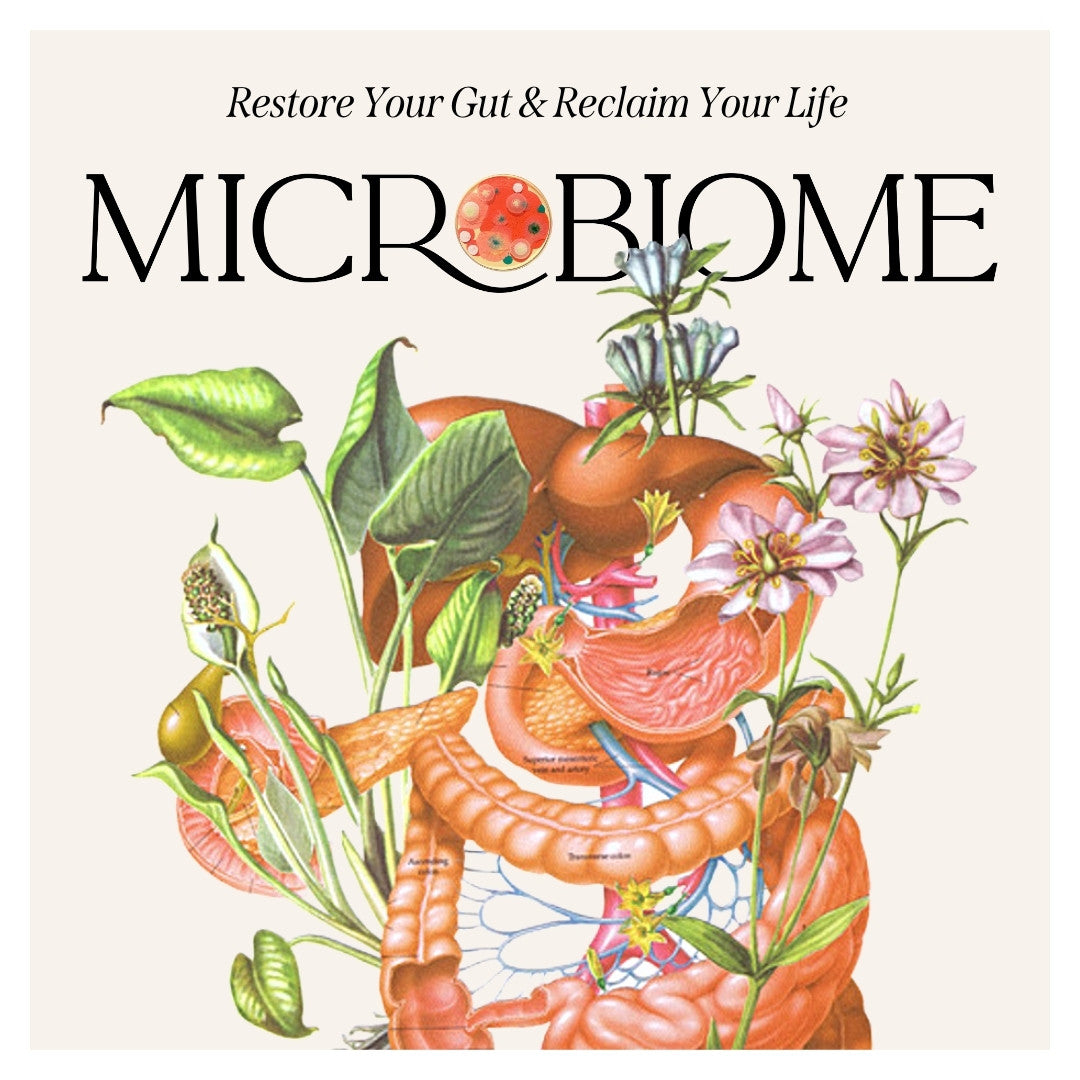

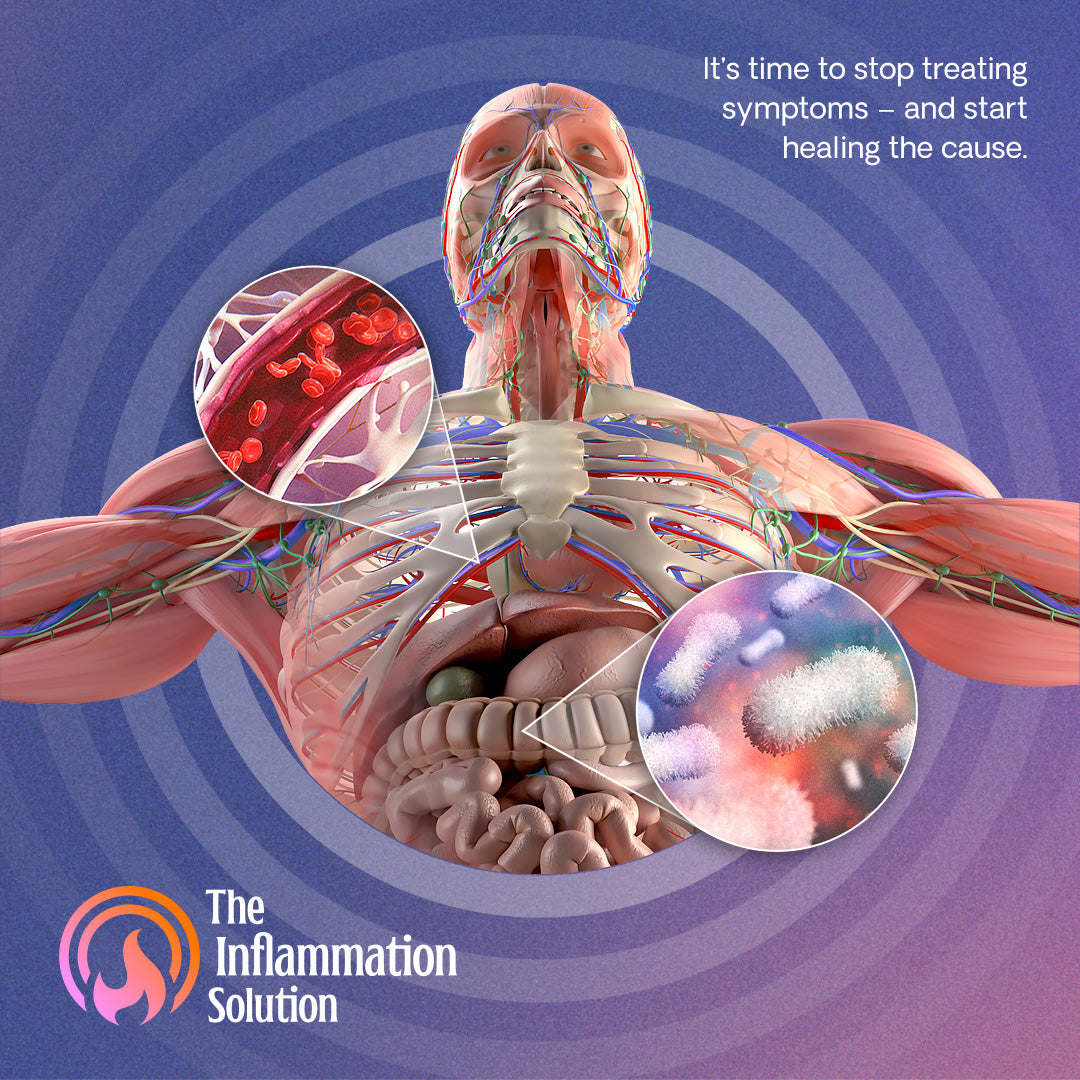
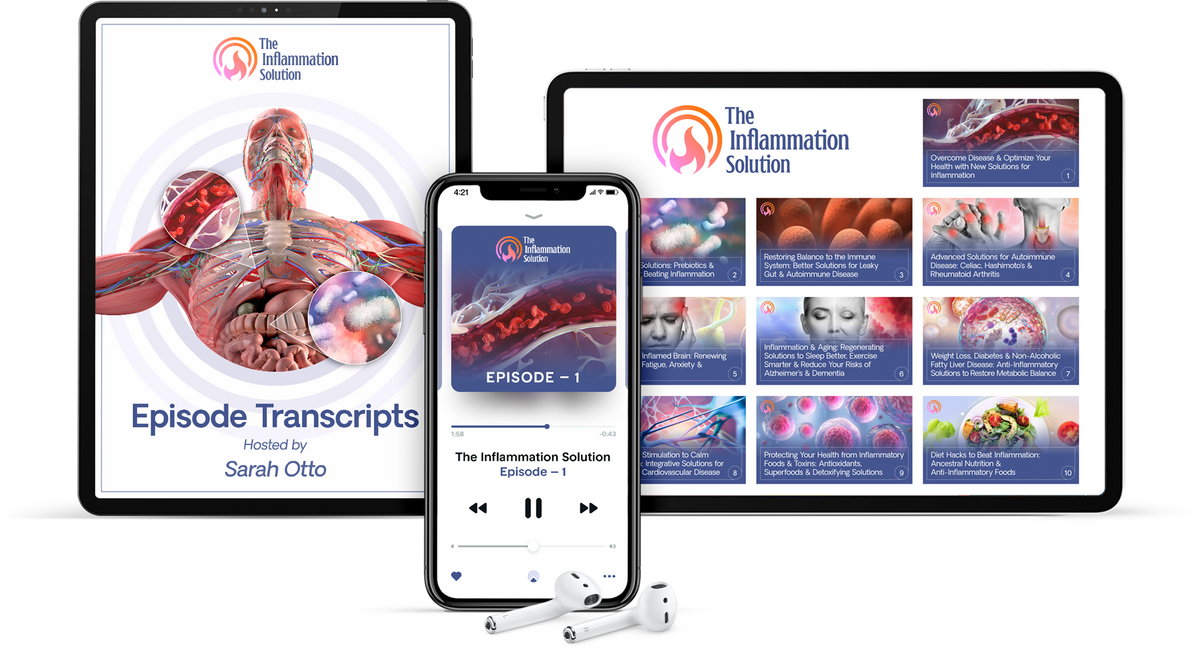
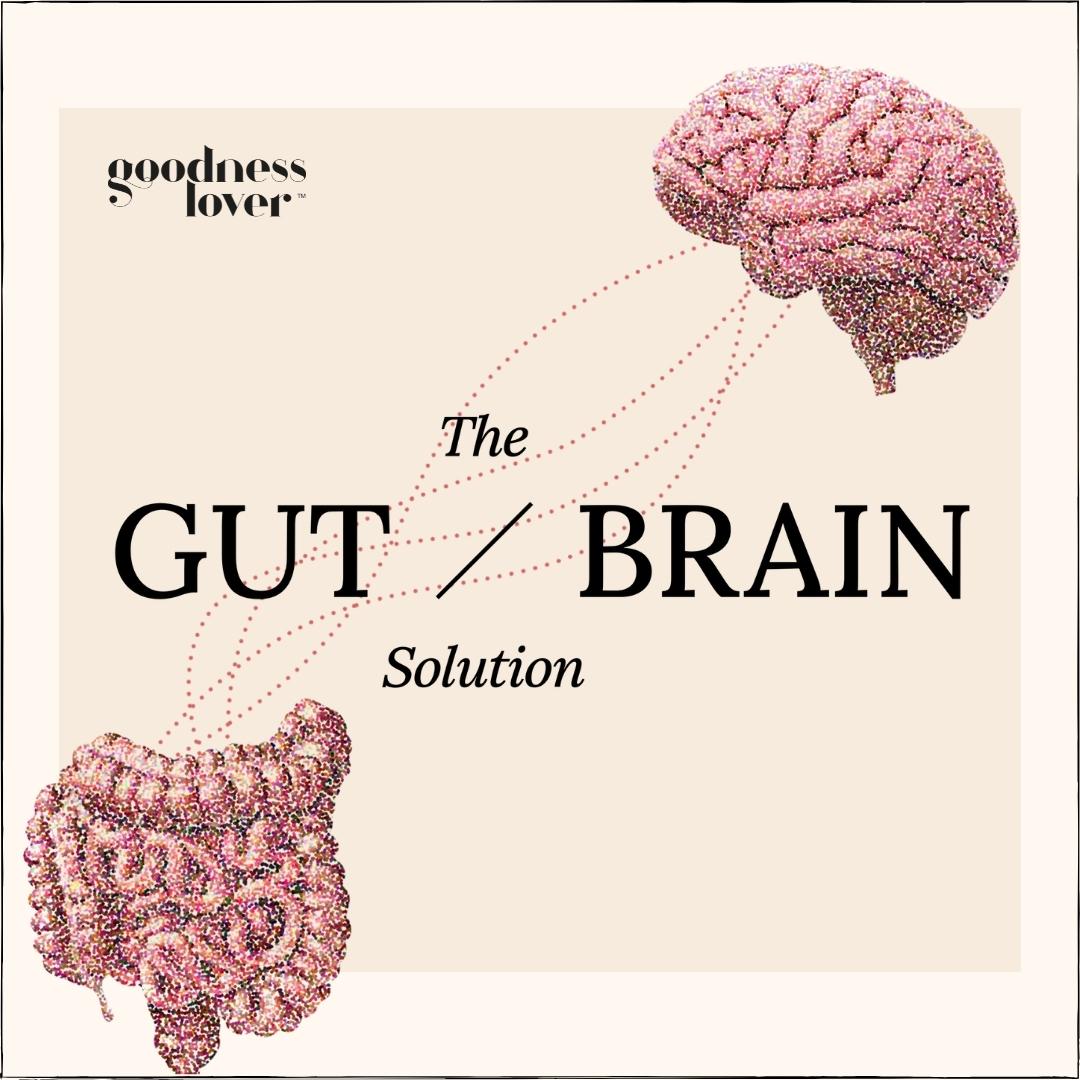

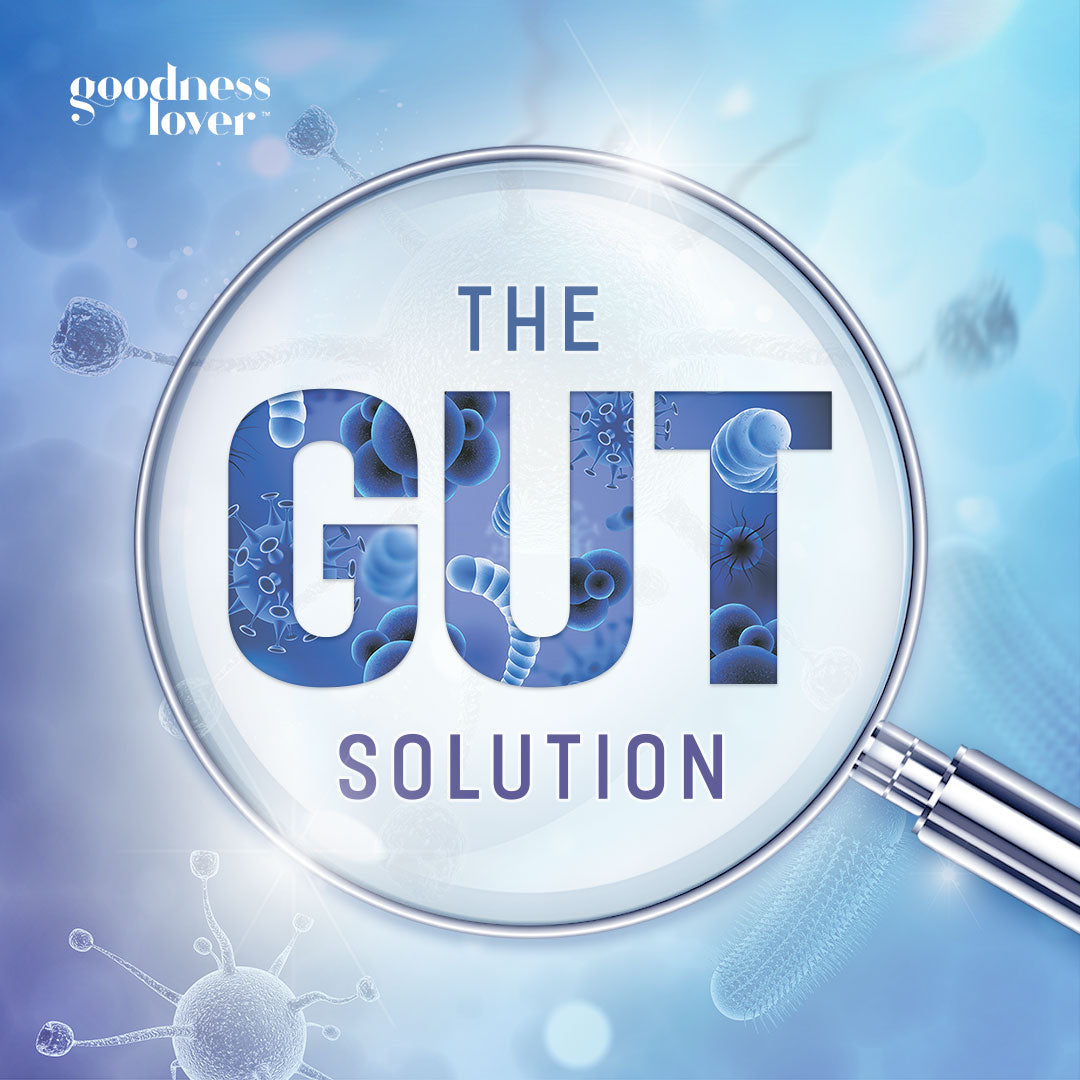
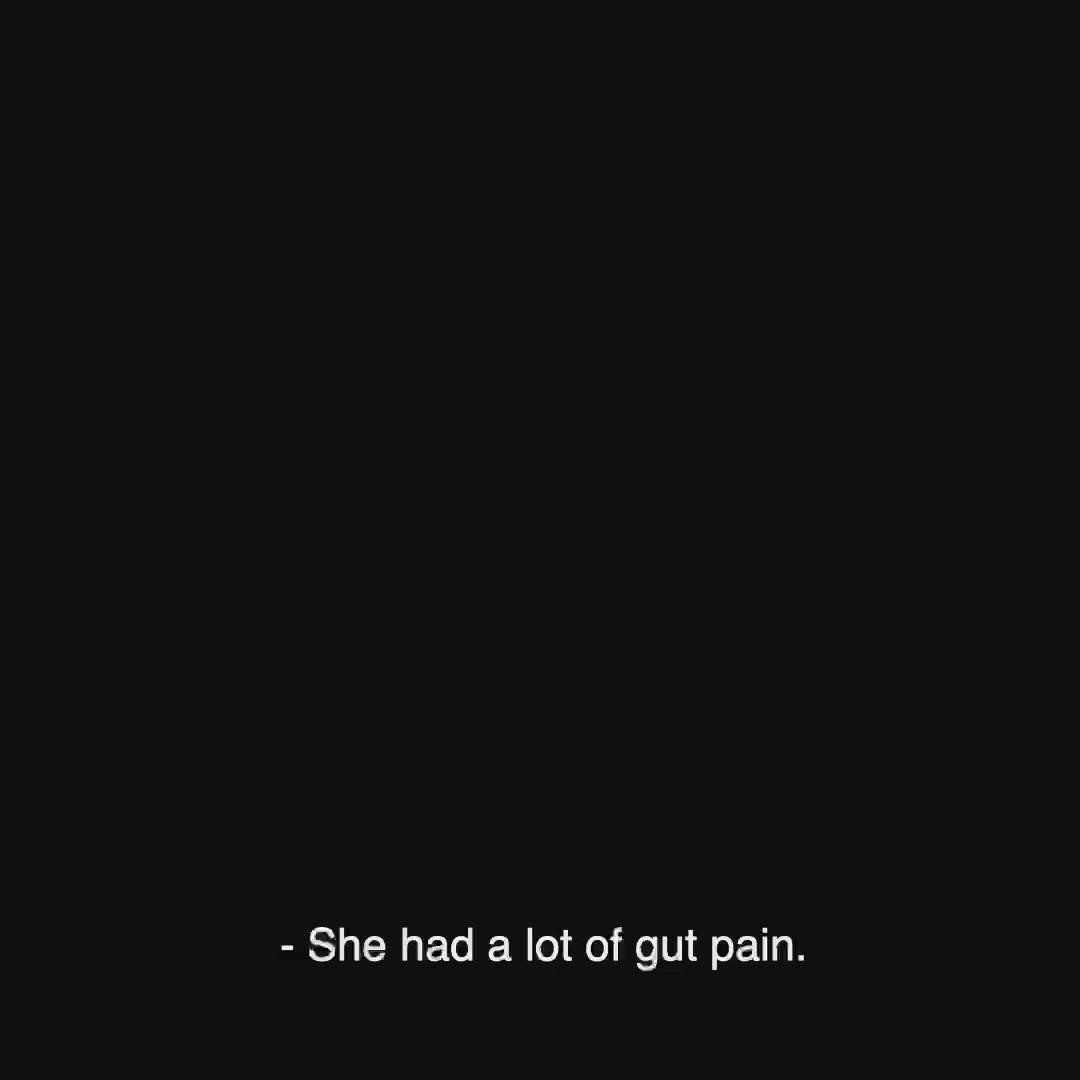
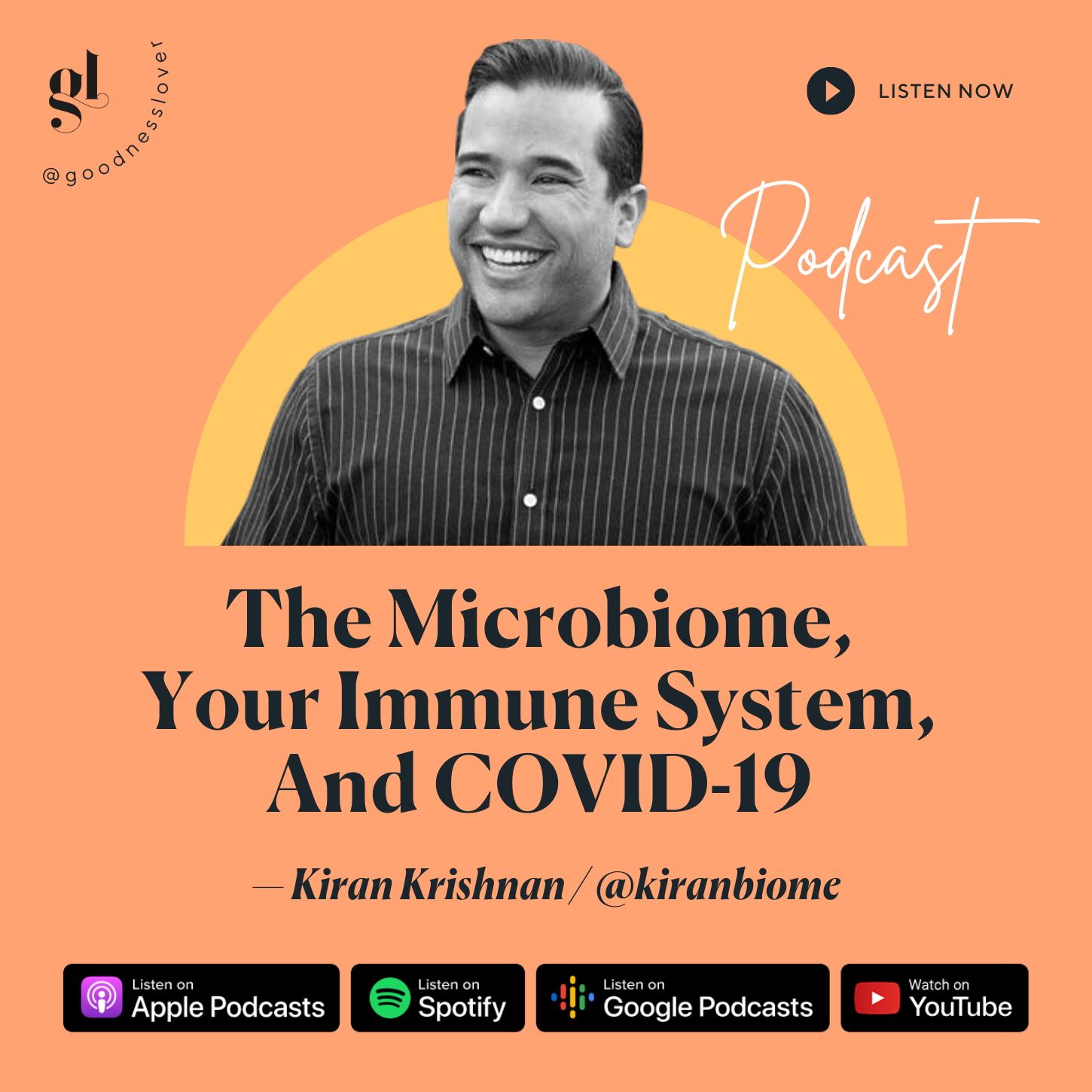
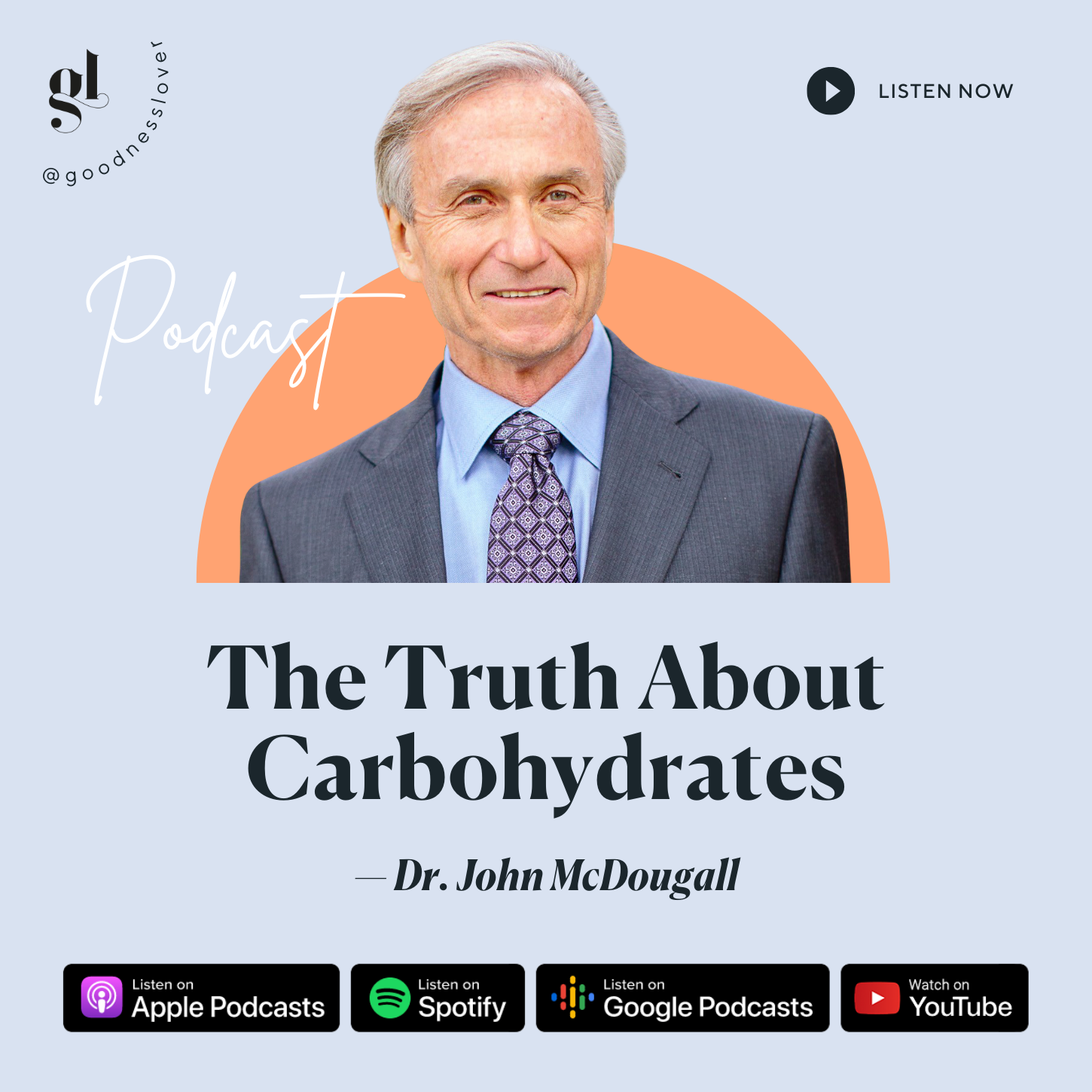

What Do You Think? Comment Below: